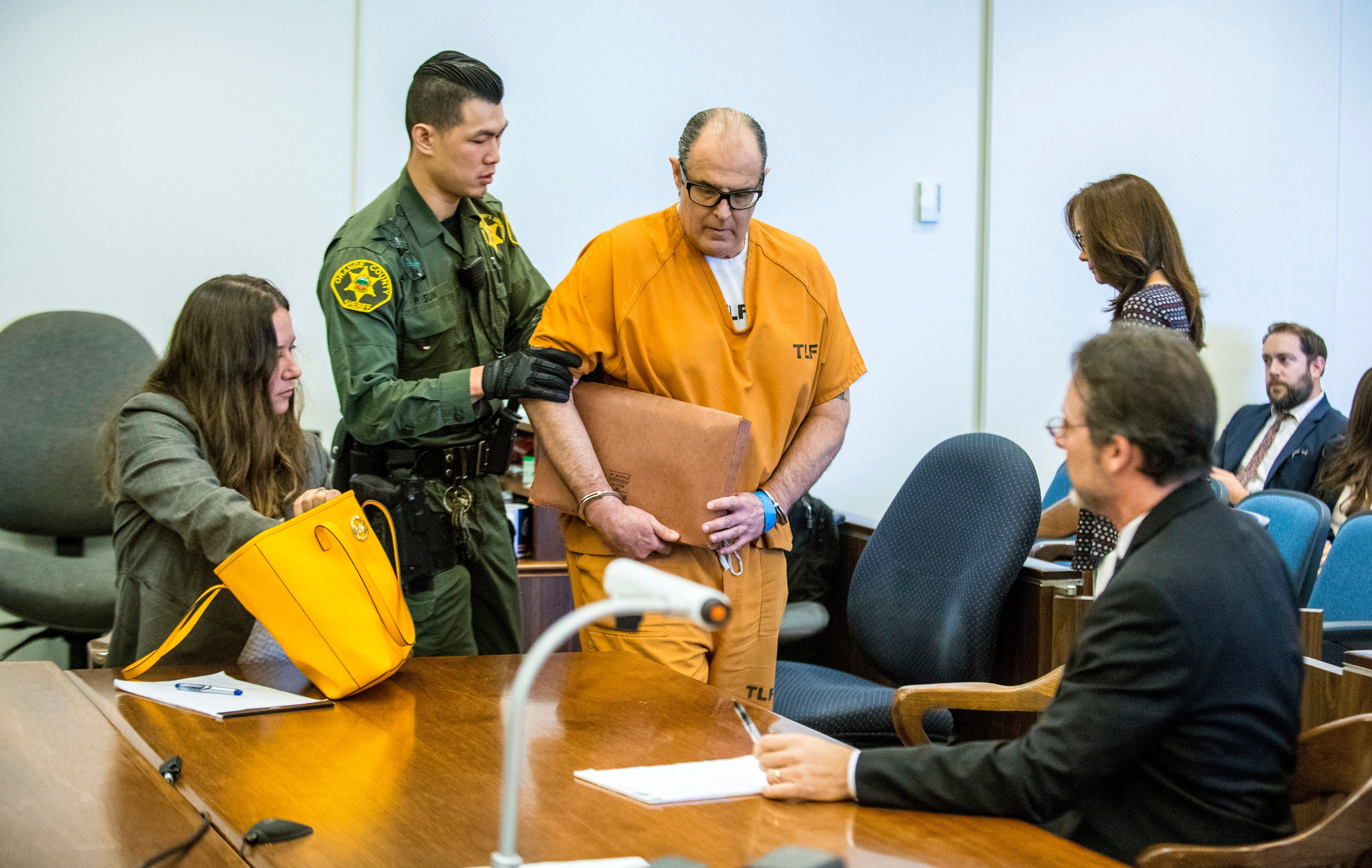Feds: California's Orange County misused jail snitches
The U.S. Justice Department says a California sheriff’s department and prosecutors ran an extensive jailhouse informant program for years that violated the rights of criminal defendants

Your support helps us to tell the story
From reproductive rights to climate change to Big Tech, The Independent is on the ground when the story is developing. Whether it's investigating the financials of Elon Musk's pro-Trump PAC or producing our latest documentary, 'The A Word', which shines a light on the American women fighting for reproductive rights, we know how important it is to parse out the facts from the messaging.
At such a critical moment in US history, we need reporters on the ground. Your donation allows us to keep sending journalists to speak to both sides of the story.
The Independent is trusted by Americans across the entire political spectrum. And unlike many other quality news outlets, we choose not to lock Americans out of our reporting and analysis with paywalls. We believe quality journalism should be available to everyone, paid for by those who can afford it.
Your support makes all the difference.The U.S. Justice Department said Thursday that the sheriff's department and prosecutors in Orange County, California, ran an extensive jailhouse informant program for years that violated the rights of criminal defendants.
The federal agency, which began investigating the allegations in 2016, issued a lengthy report detailing Orange County authorities' use of the informants from 2007 to 2016 and their failure to release information, as required by law, about incriminating statements gathered by the informants to lawyers for the accused.
The report said the district attorney's office had failed to conduct a full probe of the scandal that rocked the county of 3 million people and said it should "establish an independent body to conduct a more comprehensive review of past prosecutions involving custodial informants.”
Orange County, which saw a number of criminal cases upended once the allegations came to light, stopped using the informants in 2016, the report said.
"The failure to protect these basic constitutional guarantees not only deprives individual defendants of their rights, it undermines the public’s confidence in the fundamental fairness of criminal justice systems across the county,” Assistant Attorney General Kristen Clarke said in a statement.
The report comes years after the allegations of prosecutorial conduct arose in the case of a man who killed eight people in a 2011 shooting in a hair salon.
Scott Dekraai pleaded guilty to the murders but was spared the death penalty over authorities' use of an informant to cull information from him while he was represented by a lawyer — which was unearthed when his attorney flagged that the informant had also been involved in another high-profile case.
In a separate instance, a gang member charged with a 2004 killing took a plea deal and a shorter prison sentence after an earlier conviction was set aside over concerns that prosecutors had failed to share critical evidence.
Orange County District Attorney Todd Spitzer said he has cooperated with the federal investigation since taking office four years ago and that he led his own probe that found veteran prosecutors were negligent in the Dekraai case. He said much of the informant activity was hidden from prosecutors, preventing the proper disclosure of information.
“This report confirms exactly what we already knew,” Spitzer said in a statement. “I have made it unequivocally clear that I refuse to accept the ‘win-at-all costs’ mentality” of the prior administration.
The sheriff's office didn't immediately reply to a message seeking comment.
Assistant Public Defender Scott Sanders, who represented Dekraai, said the federal report shows that county agencies are still not doing enough to protect the rights of the accused.
Authorities can use jailhouse informants but can't have them deliberately elicit information from defendants once they are represented by lawyers. In addition, prosecutors are required to turn over evidence to defense attorneys that could be seen as favorable to their clients.